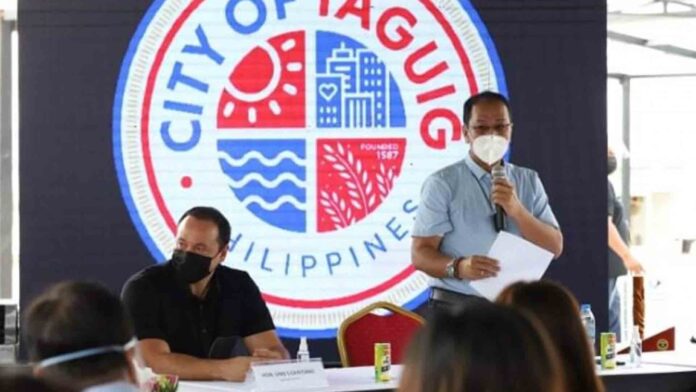The National Task Force against Covid-19 announced Wednesday that the first batch of vaccines they have procured is estimated to arrive in February this year.
“The estimated arrival of the vaccines we have initially procured will be in February. We are prioritizing to inoculate 1 million healthcare workers and front-liners,” vaccine czar Secretary Carlito Galvez Jr. said during the dry run of a vaccination facility in Taguig City’s Lakeshore Complex.
Health Secretary Francisco Duque clarified, however, that the first week of February is the targeted date of arrival of the vaccine.
“That is also depending on the available supply. If our order arrives in February then the vaccination will commence in the middle of the month or early March,” he added.
Galvez said they are negotiating to get 200,000 to 500,000 doses of Covid-19 vaccines from AstraZeneca and Pfizer.
This, Galvez said, along with the 500,000 doses from Sinovac.
Meanwhile, he added that the negotiated price of the vaccines cannot be divulged as it might jeopardize the orders that the country has made.
“The price of the vaccines we’re buying is part of the Confidentiality Disclosure Agreement (CDA). We can also lose 148 million doses of vaccine if we break the agreement,” Galvez said.
Galvez made this clarification anew in the wake of accusations of corruption as well as pressure from legislators for the government to reveal the vaccines’ negotiated prices.
Vaccine negotiation process
Galvez explained that vaccine negotiations consist of three stages.
Each stage concludes with the signing of a document between the government and the vaccine manufacturer, which details the agreed items under each negotiation phase.
These signed documents include the CDA, the term sheet, and the supply agreement.
The NTF said while the term sheet outlines the basic details and general conditions of the agreement, the supply agreement serves as the comprehensive contract that stipulates each party’s deliverables including the exact figures committed by both parties.
The CDA, which is signed during the initial phase of negotiation, protects the interest of both parties.
Governments across the globe that have purchased vaccines have signed this agreement.
Galvez said the CDA sets conditions that cannot be violated.
Once breached, this may result in the termination of a government’s contract with a particular company and may, consequently, affect the negotiations with other vaccine manufacturers.
These terms include the non-disclosure of information pertaining to the negotiated price and the exact delivery time of the vaccines.
The officials are negotiating with seven vaccine manufacturers — Novavax, Pfizer, Moderna, Sinovac, AstraZeneca, Johnson & Johnson, and Gamaleya — which all require a signed CDA.
“Hindi lamang po sa isang vaccine manufacturer tayo pumirma ng CDA, kundi sa lahat ng ating kausap (We did not only sign a CDA with one provider but to all that we were talking to,” Galvez said. (PNA)






